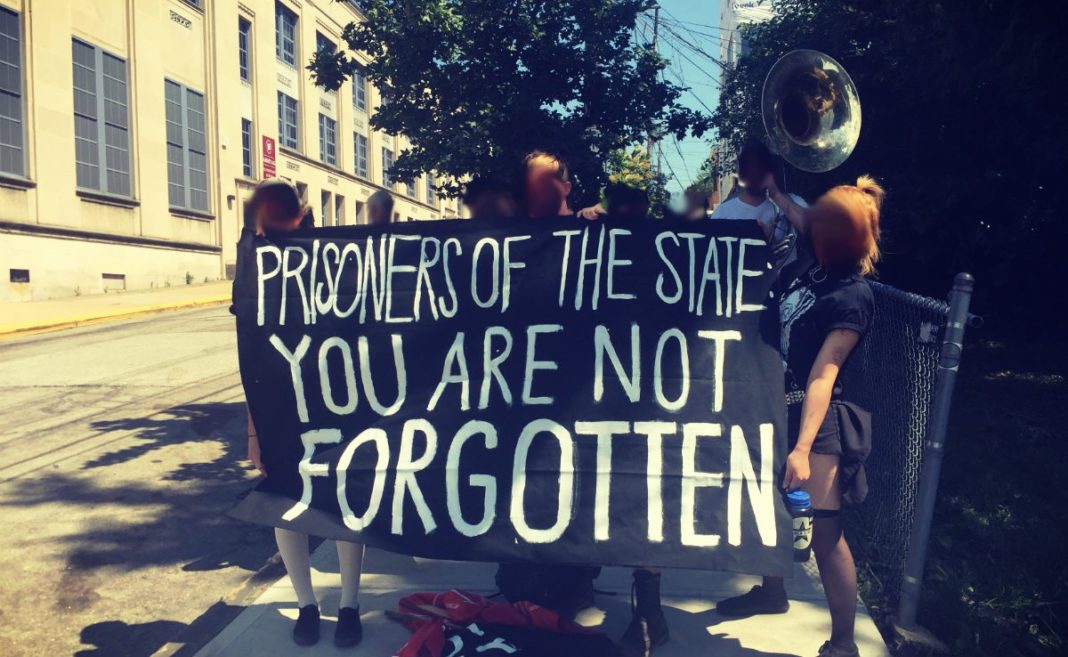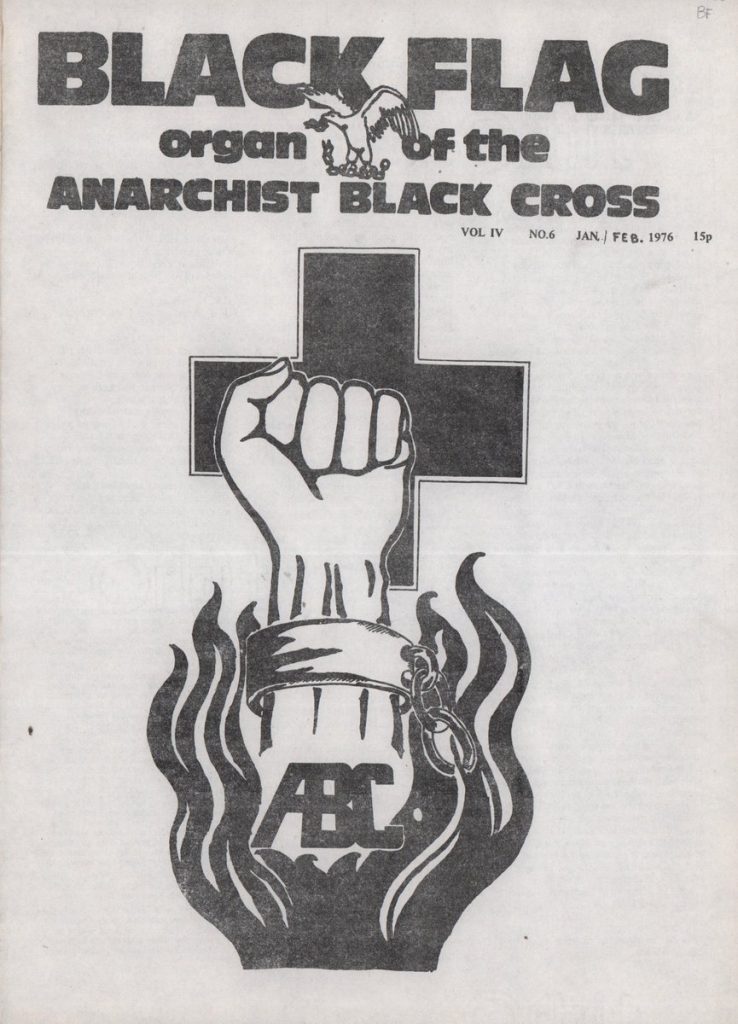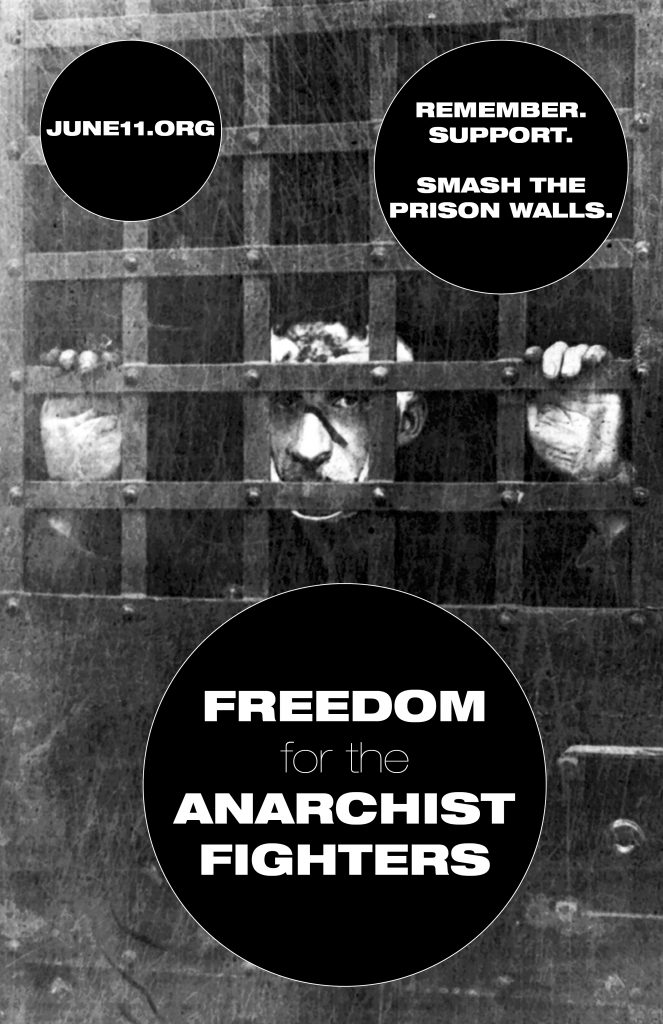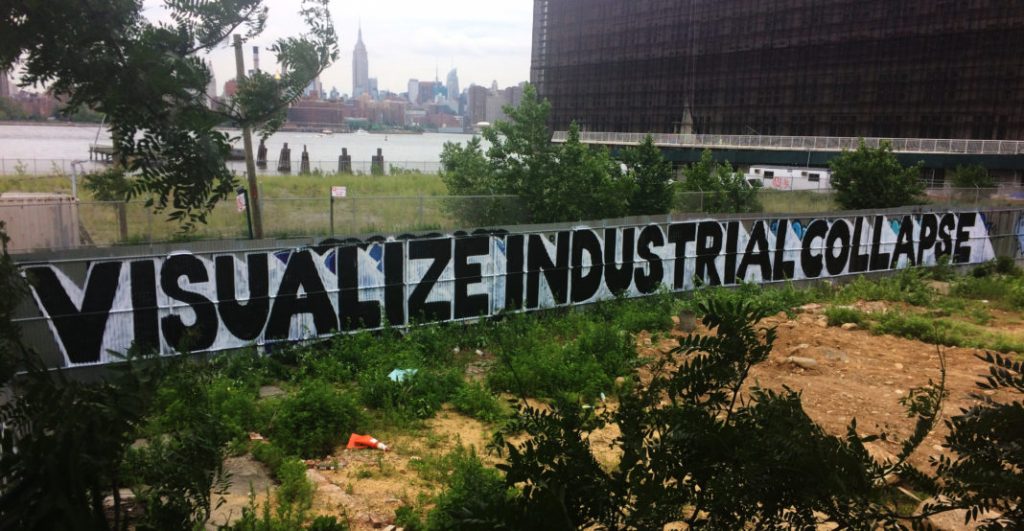2021 Callout [En Español]
2021 Callout [Deutsch]
2021 Callout [Finnish]
2021 Callout [Français]
2021 Callout [Nederlands]
[PDF for printing] [PDF for reading]
Against another year of state encroachment, against the restriction of free movement under the auspices of “safety,” against the continued brutalization of our friends in prison, we call for a renewal of solidarity on June 11, 2021: International Day of Solidarity with Marius Mason & All Long-Term Anarchist Prisoners. For 17 years, June 11th has been an occasion for celebration, mourning, and revolt. It has been a moment to breathe, to remember those fallen and those in cages, to remind ourselves of why we remain committed to the Beautiful Idea of anarchism. Through our letters, demonstrations, fundraising, and solidarity attacks we keep the beacon lit for those who have given years of their lives for their conviction that the State is a horror against which we must wager our lives.
MEMORY REMAINS A WEAPON
June 11th is, in the words of Christos Tsakalos, a day against oblivion. The architects of prison society would have prison function as a memory hole, casting our dear rebels into the void and producing in free souls a stifling amnesia. They want us to forget those who took action against the state and economy and those who continue their rebellion behind bars. Our work of solidarity with imprisoned anarchists is a hammer blow against forgetting: against the prison walls and the narcotizing technological society that shatters all meaning.
As such, we remember not only our friends behind bars, but those who have died. Marilù Maschietto in Italy. Former political prisoner Alexei “Socrates” Sutuga in Russia. Robert D’Attilio, who kept alive the memory of Sacco & Vanzetti. Doris Ensinger, whose decades of activity as a subversive, organizer, and author stretches from the student revolt of the ’60s to the present. Tireless anarchist abolitionist Karen Smith. Lucio Urtubia, whose life of expropriation in service of struggle remains an inspiration.
Finally: Stuart Christie. Stuart’s life and example cast a massive shadow in our efforts. From his time as a young prisoner in Franco’s Spain and his reanimation of the Anarchist Black Cross in the 1970s, to his persecution in the Angry Brigade trials and work in archiving anarchist history through Cienfuegos Press and Christie Books, Stuart’s tireless work will not be forgotten. He and all of our fallen companions, whether we knew them personally or not, are alive in spirit in our work this year.
TO COMBAT THE PRESENT ORDER
Prison administrations around the world have responded to the COVID-19 pandemic by implementing lockdowns and banning in-person visits, building upon prior movement to replace face-to-face visits with video chat. Physical mail is also threatened, with the United States federal prison system initiating a program to scan letters and make them only accessible on expensive tablets provided by a contracted company, Smart Communications. This allows for easier surveillance and is lucrative for Smart Communications, who can charge exorbitant rates for access to its services. It’s likely that this trend will continue in prisons around the world. With the pandemic as an alibi, prison administrations and profiteering companies have accelerated the abolition of direct human connection and the shifting of prisoners’ lives into the techno-sphere. Anarchist prisoners have been on the forefront of opposition to this regime of control, with anarchist prisoner Mónica Caballero going on hunger strike in 2020 to demand restoration of in-person visits.
REBELLION & REACTION
A year after George Floyd was murdered, our context is still strongly infused by the surge of protests, riots, and organizing that followed. In addition to the new energy, friendships, and practices that came out of the uprising, the repression that followed will affect us and our struggles for years to come. Over 13,000 arrests were made, with at least a few hundred state-level felony cases and over 325 federal cases. An unknown number have already taken pleas or are still incarcerated pretrial. Those arrested include all kinds of people: some young, some old; some long-term activists, some newly radicalized; some very connected to movements or struggles, and some very isolated. Existing bail funds and jail support projects have greatly expanded their reach, and many new ones have popped up all over the country. And some have already begun to contract, due to activity in the streets slowing down and from over-work in unsustainable models. These are part of the same continuum of anti-repression as supporting our long-term prisoners.
Some uprising defendants will most likely end up serving long prison sentences. While both immediate jail support and long-term prisoner support continue, we are now in a collective transition period between the two. Bail/jail support, court support, and prisoner support must all be done in a way that makes us stronger instead of draining us. Some connections have already begun to be made between movement prisoners and the uprising in the streets. Jeremy Hammond and friends recorded a video of a small protest and message of solidarity from Grady County Jail. Former black liberation political prisoner Dhoruba Bin-Wahad spoke about a BLM that means Black Liberation Movement and the importance of political education. This year, we seek to deepen the connection between different aspects of anti-repression, to bring the names and the wisdom of our long-term prisoners into current struggles – whether that’s in the streets against the police, in the forest against pipelines, or in the night against monuments of power – and strengthen networks and practices to support more comrades going to prison.
GIVE FLOWERS TO THE REBELS CAGED
The past year has given us the release of two long-term anarchist prisoners in the United States: Jeremy Hammond and Jay Chase. In Spain, anarchist Lisa was released on parole in April 2021. We send love and fraternal greetings to all of them as they adjust to a new terrain of life.
Sadly, many of our comrades remain behind bars, and for them we continue to fight. Eric King awaits trial (currently set for October 2021) for an incident in which he was assaulted in prison. Michael Kimble and Jennifer Rose both had their parole rejected. Sean Swain has been forced again to fight the perennial restrictions on his communications by the prison authorities.
Marius Mason continues to struggle through another year of imprisonment and could always use letters and printed articles to keep him connected to the world outside. He, like others in the US prison system, has not had an in-person visit in over a year. Marius is currently taking correspondence courses to become a paralegal. The pandemic has limited fundraising opportunities, and donations can help offset this change.
At least six anarchists have been imprisoned as the Belarusian state continues to repress the 2020-2021 uprising. They include Dmitry Dubovsky, Igor Olinevich, Sergei Romanov, Dmitry Rezanovich, Mikola Dziadok, and Akihiro Gaevsky-Hanada, many of whom have been imprisoned before.
In Greece, anarchists and others took part in bold attacks on corporate and state targets in solidarity with Dimitris Koufontinas, an imprisoned Communist urban guerrilla who began a hunger strike earlier this year. The anarchist prisoners Giannis Dimitrakis and Nikos Maziotis went on hunger strike in solidarity with him for over a month to help generate solidarity.
Mónica Caballero and Francisco Solar were again arrested in July 2020, this time facing charges related to incendiary attacks on government ministers and a real estate company. They, along with other prisoners, began a hunger strike on March 22, 2021 demanding the repeal of extremely punitive measures against prisoners. They also demanded the release of autonomous prisoner Marcelo Villarroel as well as the Mapuche, anarchist, and subversive prisoners.
In Italy, Nicola Gai was finally released from prison, while Anna Beniamino and Alfredo Cospito have been sentenced to 16 and 20 years respectively for allegedly taking part in bombing attacks associated with the Informal Anarchist Federation (FAI). In 2020, anarchist prisoners Beppe and Davide Delogu began a hunger strike in response to punitive measures taken against them by prison administrators and were soon joined by other anarchist prisoners.
June 11th comes from a legacy of defense of animals, the earth, and the wild. While we do not seek to ascribe our anarchism to them, we support land defenders and water protectors on their own terms. Red Fawn Fallis, in federal prison on charges related to opposing the Dakota Access Pipeline, was released last year. Rattler, another No DAPL prisoner, was released to a halfway house early this year. Until his recent release, water protector Steve Martinez was held in federal detention for refusal to cooperate with a grand jury. Some of the Kings Bay Plowshares sit now in prison cells for their radical Christian witness against the horrors of nuclear war and omnicide.
We condemn the repressive operations against anarchists in the UK and worldwide counter-information networks. The raid on the nostate.net servers by the Dutch state is a blatant attack on international communication and solidarity. As with previous attacks on counter-information and prisoner solidarity projects, the state’s actions make clear that combative solidarity with prisoners and coordination of informal attack are a danger to order. The police thugs would have us shrink back from solidarity in the face of their persecution, but we refuse. We stand in full solidarity with those facing repression in the UK as well as the comrades of 325, Anarchist Black Cross Berlin, Northshore Counter-Info, Montreal Counter-Info, and Act for Freedom Now.
We also want to express solidarity with those outside of self-identified anarchists and those taking part in social struggles. We see anarchy as a tension through which we strive in daily life. This leads us to look beyond the world of official struggles and anarchist milieus, and to find anarchy and subversion throughout the world more broadly.
People everywhere act anarchically, including many who are currently imprisoned. These are not necessarily special people to romanticize, bulldozers of revolt in all aspects of life. We don’t pretend that everyone is a secret anarchist who, when psychic repression is removed, will flower as such. People may act in a way we find beautiful one moment but then do something we disagree with the next. We still express solidarity with these people because they engage in acts of refusal and revolt. We see anarchy not as a pure identity that fixates on special people, but instead as a spirit that emerges from activity that opens space for freedom and community. As anarchists, we share in the joys and difficulties of freedom, its contradictions and complications. We are not above others, pure arbiters of freedom, but individuals capable of the most cowardly submission and the most audacious rebelliousness. Rather than worship those who appear to embody our values the most, we will instead tend to the fire of anarchy wherever we find it.
ABOLITION, AND OTHER SLIPPERY WORDS
Despite the mainstreaming of prison abolition, well over 10 million people are currently locked in the world’s dungeons, a figure rising faster than increases in population. At the same time that we have seen the idea of abolition generalize, we have also seen it mutilated. While this has largely related to the abolition of police, the same distortions must be challenged in discourse on prison abolition. The city of Camden, New Jersey “abolishing” their police department in 2013 was touted as a successful example that other cities could follow to address a racist and violent police force, but the city police department was merely replaced with a county one. This is not abolition. Just as decreased funding or fewer police are not abolition; as civilian review boards have not and will not hold anyone accountable; as less money, fewer COs, or oversight committees will not abolish prisons. We know that police and prisons cannot be abolished from this society: they need each other. Political prisoners, prison rebels, and those who refuse to submit will be some of the last to be granted the reprieves from the state that come from reforms. When we say we want “abolition,” we mean we want police, prisons, and the society that necessitates them to cease to exist.
LET THE GAMES BEGIN
We stand at a crossroads. Do we allow anarchism to become flat and colorless, a new word to describe an old corpse? Do we evaporate into vague leftism and its tired theater of activism? Do we surrender our principles – solidarity, mutual aid, direct action, cooperation – to the new managers of revolt?
Or do we keep to our own light, our own vision, our own project? June 11th remains a light in the darkness: for our comrades in prison, but also for us. Our work renews our fidelity to freedom and a life in common. It affirms to us, in our doubt and confusion, that anarchy lives in our day to day lives and connects us to a rich and vibrant history of free spirited revolt. It asserts that anarchy will be combative or it will be dead. Solidarity with anarchist prisoners is not, for us, a humorless endeavor, a duty-infected routine. It is generative play and the substantiation of free community. Will you join us?
Please send us your event information, poster designs, reportbacks, and communiques at june11th at riseup dot net.




